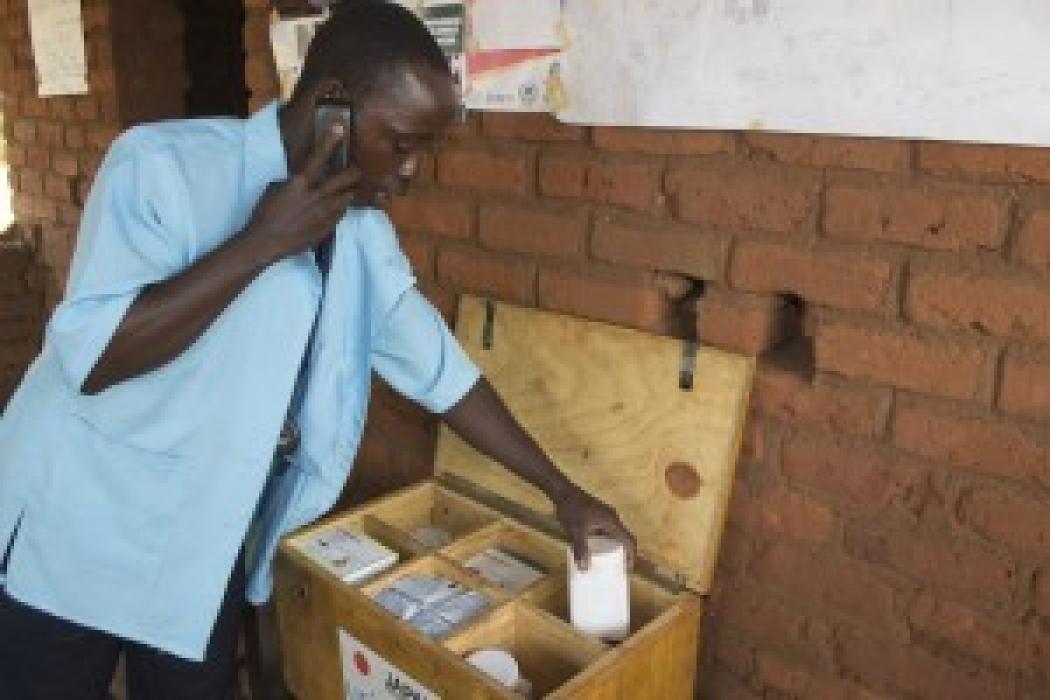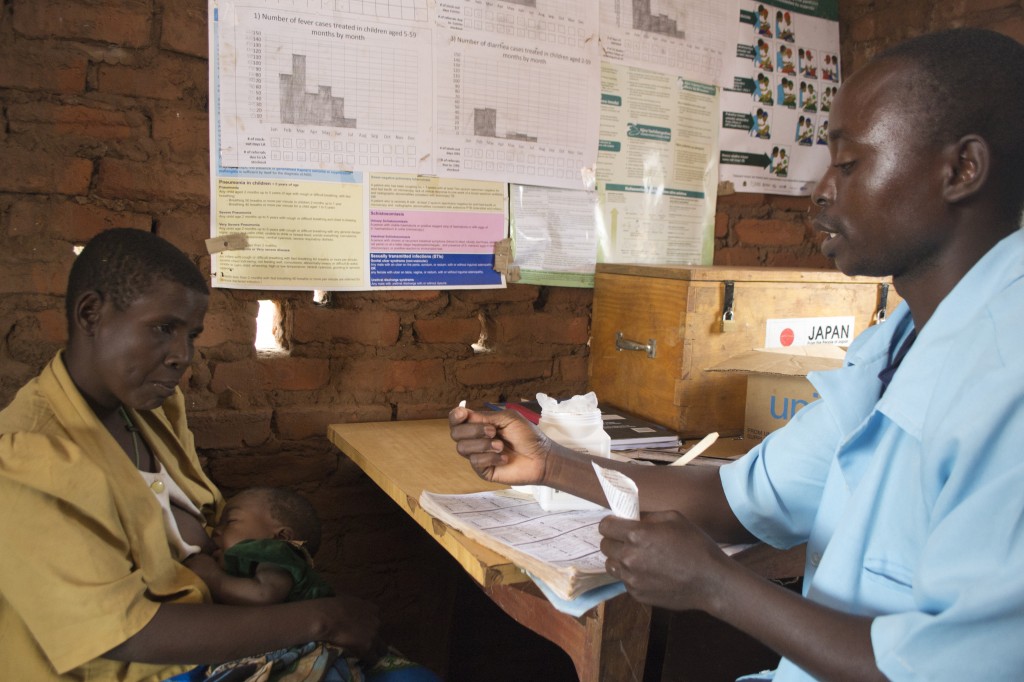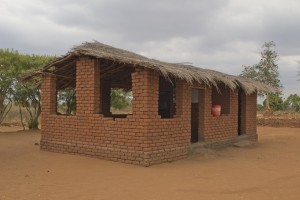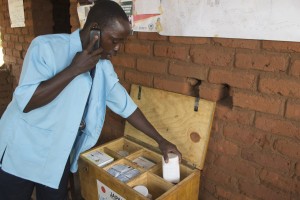Malawian frontline health workers’ supply chain buoyed by mhealth system

By Kirstin Krudwig, SC4CCM 
As a frontline health worker in Malawi, Petro Kangulu is one of approximately 4,000 health surveillance assistants (HSA) focused on improving the health of people in his community by providing community case management (CCM) for common childhood illnesses.
Petro, who lives in Kasungu district in western Malawi and was selected by his community for the role four years ago, began providing health services in 2011. Petro accepted the position because he wanted to help the government with problems in his community. He is the sole health worker at the Chimtima Village Clinic, which serves a population of 940. 
Evaluating and treating sick children is one of his main responsibilities but he also provides preventive health services such as vaccinations, family planning and education on a variety of health topics. Petro finds his job very rewarding but says one of the most important factors to his success is having an adequate stock of medications to treat the sick children that come to him.
Petro sees, on average, 11 sick children every day, but this number rises to as many as 30-35 children per day during the rainy season when cases of malaria and diarrhea increase. He has set hours for patients to visit the village clinic each week but parents also know he will see sick children whenever needed, including in the middle of the night. He and his family live near the clinic so he can quickly be available for patients.
As a community health worker, Petro says that whether the supply chain works or not affects his ability to do his job since he cannot treat sick children if he does not have adequate supplies. To make sure he has a regular supply of medicines, Petro uses cStock, a mobile health system that has been implemented by the Malawi Ministry of Health and SC4CCM, a JSI Research & Training Institute, Inc. project. cStock is a text message-based reporting and resupply system that is currently being used by about half of the frontline health surveillance assistants that provide CCM services in Malawi every month. Petro has found the program useful to ensure that medicines are available at the health center when he needs to restock his supply box.
He uses his personal cell phone to send a text at the beginning of every month with information on his current stock levels. cStock uses past information received from Petro to estimate how much he needs for the next month and generates an “order” that is sent via text message to the health center supervisor. The health center then reviews their stock situation, packs the order based on what they have available and the quantity reported in the text, and texts him back, usually within a day, saying either that his order is ready or the health center is unable to resupply at this point. After receiving this “order ready” message, he walks the 5 kilometers to his local health center to pick up his supplies for the coming month. If he runs low on products before the end of the month, he knows he can send an emergency order via text though he said this happens rarely. 
Petro said that “cStock has helped me to do my job easily. We go to the health center when we receive message ‘order ready.’ When we go there, we have confidence. When we go, we’ll collect medicines.” Because his supervisor uses cStock to notify him when products are available, Petro no longer makes wasted trips to the health center or returns empty handed. Petro also feels that communication between himself and his supervisor at the health center has improved because of cStock.
In order to ensure that Petro has products available to treat all of the children that visit his community clinic, the entire supply chain must work effectively by sending information on what patients need up the chain and products to meet that demand down the chain. While cStock cannot address all supply chain challenges, it has improved communication and coordination between the frontline health workers and their health center so that the limited health products that are available can be distributed effectively.
